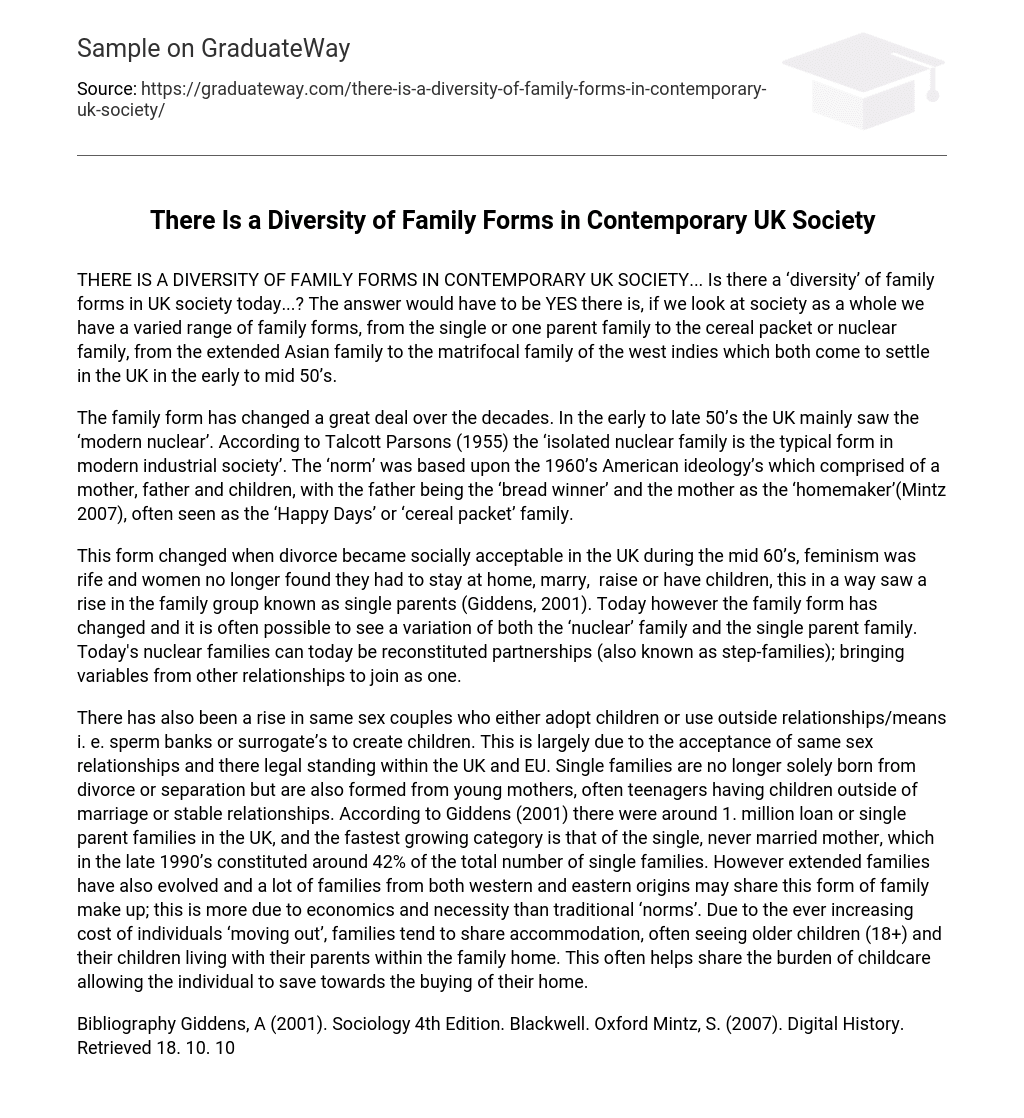THERE IS A DIVERSITY OF FAMILY FORMS IN CONTEMPORARY UK SOCIETY… Is there a ‘diversity’ of family forms in UK society today…? The answer would have to be YES there is, if we look at society as a whole we have a varied range of family forms, from the single or one parent family to the cereal packet or nuclear family, from the extended Asian family to the matrifocal family of the west indies which both come to settle in the UK in the early to mid 50’s.
The family form has changed a great deal over the decades. In the early to late 50’s the UK mainly saw the ‘modern nuclear’. According to Talcott Parsons (1955) the ‘isolated nuclear family is the typical form in modern industrial society’. The ‘norm’ was based upon the 1960’s American ideology’s which comprised of a mother, father and children, with the father being the ‘bread winner’ and the mother as the ‘homemaker’(Mintz 2007), often seen as the ‘Happy Days’ or ‘cereal packet’ family.
This form changed when divorce became socially acceptable in the UK during the mid 60’s, feminism was rife and women no longer found they had to stay at home, marry, raise or have children, this in a way saw a rise in the family group known as single parents (Giddens, 2001). Today however the family form has changed and it is often possible to see a variation of both the ‘nuclear’ family and the single parent family. Today’s nuclear families can today be reconstituted partnerships (also known as step-families); bringing variables from other relationships to join as one.
There has also been a rise in same sex couples who either adopt children or use outside relationships/means i. e. sperm banks or surrogate’s to create children. This is largely due to the acceptance of same sex relationships and there legal standing within the UK and EU. Single families are no longer solely born from divorce or separation but are also formed from young mothers, often teenagers having children outside of marriage or stable relationships. According to Giddens (2001) there were around 1. million loan or single parent families in the UK, and the fastest growing category is that of the single, never married mother, which in the late 1990’s constituted around 42% of the total number of single families. However extended families have also evolved and a lot of families from both western and eastern origins may share this form of family make up; this is more due to economics and necessity than traditional ‘norms’. Due to the ever increasing cost of individuals ‘moving out’, families tend to share accommodation, often seeing older children (18+) and their children living with their parents within the family home. This often helps share the burden of childcare allowing the individual to save towards the buying of their home.
Bibliography Giddens, A (2001). Sociology 4th Edition. Blackwell. Oxford Mintz, S. (2007). Digital History. Retrieved 18. 10. 10 from http://www. digitalhistory. uh. edu/historyonline/familyhistory. cfm Parsons, T. (1955). “The American Family: Its Relations to Personality and the Social Structure. ” In Family Socialization and Interaction Process, ed. T. Parsons and R. F. Bales. New York: Free Press. WC: 461





